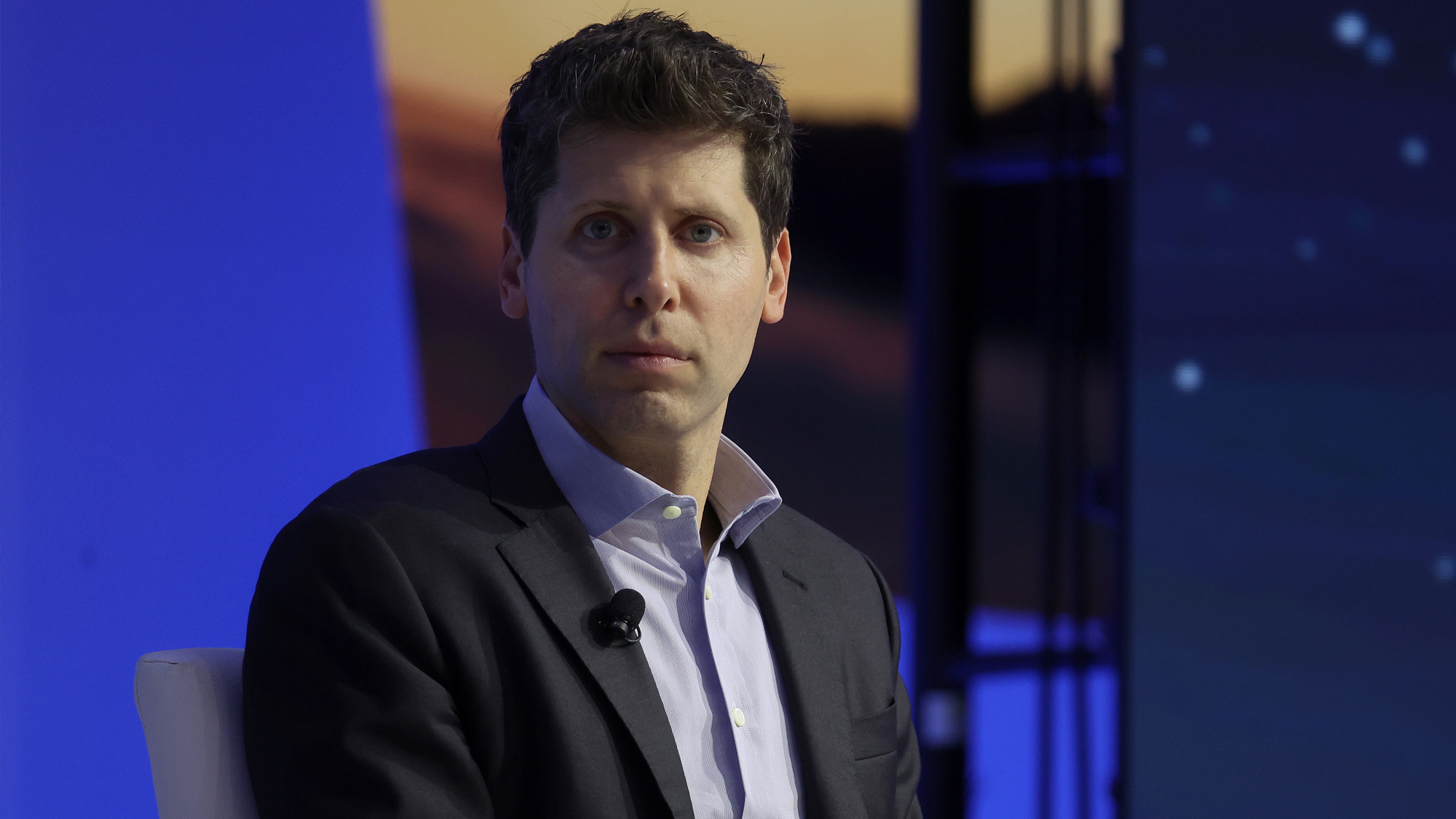OpenAI: A boardroom coup wrenches the AI world
OpenAI employees are asking the board to resign

A free daily email with the biggest news stories of the day – and the best features from TheWeek.com
You are now subscribed
Your newsletter sign-up was successful
The smartest insight and analysis, from all perspectives, rounded up from around the web:
Sam Altman walked onstage at OpenAI’s first developer conference on Nov. 6 to rapturous applause as he "ticked off the company’s accomplishments," said Max Chafkin and Rachel Metz in Bloomberg. Last week, the co-founder and chief executive of the world’s most famous artificial intelligence company was fired by its board via teleconference. The abrupt dismissal less than two weeks after Altman’s thunderous ovation triggered a chaotic weekend of jockeying over the future of the company that brought ChatGPT to the world and set off an international AI frenzy. More than 730 of OpenAI’s 770 employees signed a letter saying they would quit if the board didn’t resign. Microsoft, which owns a 49% stake, promptly said it would hire Altman to "lead a new in-house AI lab alongside OpenAI board member Greg Brockman." Meanwhile, OpenAI’s board clung to its original goal as a nonprofit founded to "advance digital intelligence" to "benefit humanity as a whole." Under Altman, that mission was spinning "out of control," becoming "maybe even dangerous."
To understand the chaos you have to know that OpenAI isn’t structured like a normal company, said Rohan Goswami at CNBC. At the top is its board, the "group responsible for pushing Altman out," which controls a nonprofit corporation, OpenAI Inc. That nonprofit owns and controls a subsidiary, OpenAI Global, which is the company that Microsoft invested in. The for-profit subsidiary was created so that OpenAI could lure enough talent to keep up with Big Tech rivals. But "none of its largest backers, even Microsoft, have board seats." Microsoft has something else, though, said Ben Thompson in Stratechery: "a perpetual license to all OpenAI intellectual property, including source code." The question was always whether "it had the talent to exploit that IP." You can make the case that by hiring Altman and Brockman Microsoft can "acquire OpenAI for $0 and zero risk of an antitrust lawsuit."
The Week
Escape your echo chamber. Get the facts behind the news, plus analysis from multiple perspectives.

Sign up for The Week's Free Newsletters
From our morning news briefing to a weekly Good News Newsletter, get the best of The Week delivered directly to your inbox.
From our morning news briefing to a weekly Good News Newsletter, get the best of The Week delivered directly to your inbox.
This isn’t Altman’s first ugly corporate breakup, said Eric Newcomer in his Substack newsletter. His departure as president of the startup accelerator Y Combinator "was more contentious than publicly understood," echoing some of what’s going on here. Two of OpenAI’s former executives quit to form a safer AI company, Anthropic, because they "felt troubled enough" by Altman’s approach. This fiasco is exactly why AI demands regulation, said Steve Petersen in the New York Post. The technology carries too much potential danger for corporations to police themselves. "Investor greed should not be a thumb on this particular scale."
OpenAI tried and failed to straddle a rift forming in Silicon Valley, said The Economist. On one side are the "doomers, who believe that, left unchecked, AI poses an existential threat to humanity." Opposite them are the "boomers," who think doomers are hysterical and ignorant of AI’s "potential to turbocharge progress." The board seems to be in the doomer camp, while Altman himself "seemed to have sympathy with both groups." Whichever side can prove "more influential" will shape what regulators do to promote or limit AI — which in turn will "determine who will profit from AI most in the future."
This article was first published in the latest issue of The Week magazine. If you want to read more like it, you can try six risk-free issues of the magazine here.
A free daily email with the biggest news stories of the day – and the best features from TheWeek.com
-
 El Paso airspace closure tied to FAA-Pentagon standoff
El Paso airspace closure tied to FAA-Pentagon standoffSpeed Read The closure in the Texas border city stemmed from disagreements between the Federal Aviation Administration and Pentagon officials over drone-related tests
-
 Political cartoons for February 12
Political cartoons for February 12Cartoons Thursday's political cartoons include a Pam Bondi performance, Ghislaine Maxwell on tour, and ICE detention facilities
-
 Arcadia: Tom Stoppard’s ‘masterpiece’ makes a ‘triumphant’ return
Arcadia: Tom Stoppard’s ‘masterpiece’ makes a ‘triumphant’ returnThe Week Recommends Carrie Cracknell’s revival at the Old Vic ‘grips like a thriller’
-
 Currencies: Why Trump wants a weak dollar
Currencies: Why Trump wants a weak dollarFeature The dollar has fallen 12% since Trump took office
-
 Elon Musk’s starry mega-merger
Elon Musk’s starry mega-mergerTalking Point SpaceX founder is promising investors a rocket trip to the future – and a sprawling conglomerate to boot
-
 TikTok: New owners, same risks
TikTok: New owners, same risksFeature What are Larry Ellison’s plans for TikTok US?
-
 Will SpaceX, OpenAI and Anthropic make 2026 the year of mega tech listings?
Will SpaceX, OpenAI and Anthropic make 2026 the year of mega tech listings?In Depth SpaceX float may come as soon as this year, and would be the largest IPO in history
-
 Leadership: A conspicuous silence from CEOs
Leadership: A conspicuous silence from CEOsFeature CEOs were more vocal during Trump’s first term
-
 Ryanair/SpaceX: could Musk really buy the airline?
Ryanair/SpaceX: could Musk really buy the airline?Talking Point Irish budget carrier has become embroiled in unlikely feud with the world’s wealthiest man
-
 Powell: The Fed’s last hope?
Powell: The Fed’s last hope?Feature Federal Reserve Chairman Jerome Powell fights back against President Trump's claims
-
 Taxes: It’s California vs. the billionaires
Taxes: It’s California vs. the billionairesFeature Larry Page and Peter Thiel may take their wealth elsewhere